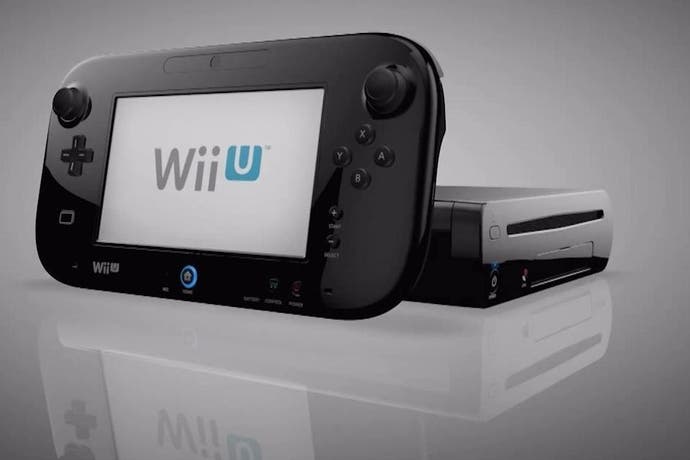The Wii U a failure? Far from it
Chapter and Miiverse.
The time for tearful Wii U eulogies has likely been and gone (it felt like notice was already being served on Nintendo's home console not long after it came out four years ago), but as production winds down now is as good a time as any to take stock of its legacy. Maybe you might look for it in its sales figures, which are notoriously poor - the 13.36m sold as of September fall well short of the 21.74 million GameCubes Nintendo shifted, making it comfortably the company's poorest performing home platform. It's edged ahead of Sega's Dreamcast - itself with a tally of 9.13m sold - but looking at the sales alone the Wii U has been a disaster.
Is that where you find the true worth of a console, though? I'm not an investor or an analyst and, like the majority of people that come to a specialist site like Eurogamer, I'm simply someone who loves video games. I like some better than others, and there are a truly special few that find their way to my heart. I don't judge my favourite films by their box office receipts, just as much as I don't rate my favourite songs by how high they charted. Look beyond the sales, and by the one metric that matters to people like me - the number of games worth playing on any given platform - the Wii U was a resounding success.
That's what happens when your console benefits from the attention of one of the best game makers around (and Nintendo had to double down here, seeing as any meaningful third-party support didn't last beyond the launch window), but the Wii U was such a charmer not simply because it played host to Nintendo's big first-party exclusives over the past four years. What made it special was how it shaped those games, shepherding in a back catalogue that's distinctive, idiosyncratic and often plain wondrous.
There's the second screen, of course, but Nintendo never really got its head around the Wii U's biggest quirk. Launch title Nintendo Land still stands as the only game to fully explore the possibilities - and no, I will never, ever stop going on about how brilliant Nintendo Land is - while elsewhere it often found itself complementing games, or in some unfortunate cases like Star Fox Zero just getting in the way. The GamePad was different, for sure, and it marked the end of a dual-screen era for Nintendo that began in earnest with the Nintendo DS (and has its roots in Gunpei Yokoi's Game & Watch series in the 80s), but it was more often an awkward appendage than an outstanding addition.
The GamePad spoke of an experimental edge that ran through the Wii U, and it's here that perhaps its poor commercial performance was something of a blessing. A smaller audience allowed Nintendo to try out new ideas that might not have found space on the Wii - the obvious example being Splatoon, the company's first new character-driven first-party IP since 2001's Pikmin. Splatoon was Nintendo ushering a younger generation of designers within its ranks, promoting the likes of Tsubasa Sakaguchi with wonderful effect. The result was possibly Nintendo's finest game in a generation.
The Wii U represented another subtle shift, too. After Nintendo lost the affections of the more traditional Nintendo fan as it courted the mainstream in the heady days of the Wii, the Wii U saw it win them back with aplomb, delivering quirky modern-day cult classics such as Bayonetta 2, Xenoblade Chronicles X and Tokyo Mirage Sessions FE, games intended to placate the core rather than achieve any meaningful sales.
Sales shouldn't mean too much to the people who play games, and they certainly don't matter too much to me. The Wii U might have been Nintendo's biggest flop of a home console. But to someone like myself who's gorged on its string of exclusives, oddities and cult classics, it's easily been Nintendo's finest console since the SNES.


